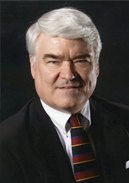© 2017 The Texas Lawbook.
By Janet Elliott (AUSTIN) – The Texas Supreme Court Friday ruled that the purchaser of bankruptcy assets is liable for a $63 million oil field cleanup despite lacking disclosure of the obligation.
The court split 5-3 in the closely watched case, with one justice not participating. The majority said the bankruptcy asset purchaser, Noble Energy Inc., had acquired the indemnity obligation as part of an agreement to purchase a debtor’s assets in bankruptcy and that Noble’s subsequent actions had shown “constructive,” if not actual, notice of the obligation.

In a dissenting opinion, Justice Phil Johnson responded that confidence in bankruptcy plans and court orders only comes with proceedings that are transparent.

Justices Paul Green and Eva Guzman joined the dissent. Justice Debra Lehrmann did not participate.
The case centers on a 1994 property swap involving Phillips Petroleum and Alma Energy. Under the exchange agreement, the parties agreed to indemnify each other for any cleanup associated with the lands they were exchanging.
In 2010, the state of Louisiana sued Phillips Petroleum’s successor, ConocoPhillips, on behalf of Cameron Parish schools over environmental contamination in the Johnson Bayou Field, one of the properties Phillips received from Alma in the 1994 swap. ConocoPhillips settled with Louisiana for $63 million in 2012, but then turned to Alma’s successor for reimbursement under the indemnity provisions of the original. That successor was Noble Energy.
In 1999, five years after the original exchange, Alma had filed for bankruptcy under Chapter 11. Its contracts and assets, including the contaminated property in the Johnson Bayou Field, were acquired by Elysium Energy. In 2004, Noble merged with the parent company of Elysium Energy.
When ConocoPhillips demanded reimbursement for the Louisiana settlement, Noble rejected the demand, alleging they knew nothing of the indemnity agreement and that any such provision under the original exchange would have been discharged by the Alma bankruptcy.
A state district court in Harris County agreed and granted summary judgment for Noble. That ruling was reversed by the 14th Court of Appeals in Houston, which held that the exchange agreement was an “executory contract” assumed by Alma and assigned to Noble in the bankruptcy proceeding.
Supporters of Noble had argued in amicus filings at the Supreme Court that an adverse ruling would discourage participation in bankruptcy-related transactions. Energy giants ExxonMobil and Chevron weighed in for Conoco, saying that a ruling for Noble would undermine the enforceability of contracts assumed in bankruptcy.
During oral arguments in January, Noble’s attorney Thomas C. Wright said the contract for the contaminated property was not listed in the bankruptcy asset purchase and Noble had no opportunity to accept or reject the indemnity requirement.
Omar Alaniz, who represents ConocoPhillips, countered that the 2000 bankruptcy plan explicitly states all executory contracts not rejected were assigned to Elysium. Alaniz, a Dallas partner at Baker Botts, said the property-swap agreement was not among 132 contracts rejected by Elysium and that a review of public records would have shown production payments involving the school land.
Richard Mithoff, who also represented ConocoPhillips, also argued that Noble had already acknowledged the property-exchange agreement by decommissioning an obsolete tank battery on the property and agreeing to indemnify and defend ConocoPhillips in two other contamination lawsuits.
Both arguments were acknowledged in Hecht’s majority opinion.
In dissent Johnson said the majority’s decision runs counter to bankruptcy authority because “constructive knowledge” is not applicable.
“Debtors are statutorily required to explicitly disclose assets, liabilities, and executory contracts so all the parties involved, including the bankruptcy court, can rely on the disclosures,” he said.
Read the majority opinion here and the dissent here.
© 2017 The Texas Lawbook. Content of The Texas Lawbook is controlled and protected by specific licensing agreements with our subscribers and under federal copyright laws. Any distribution of this content without the consent of The Texas Lawbook is prohibited.
If you see any inaccuracy in any article in The Texas Lawbook, please contact us. Our goal is content that is 100% true and accurate. Thank you.
